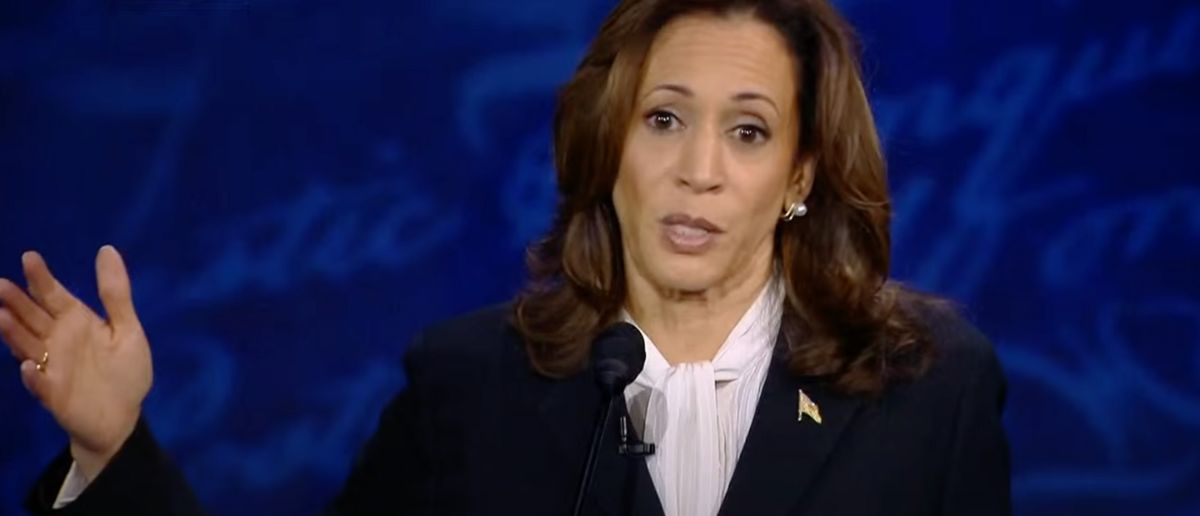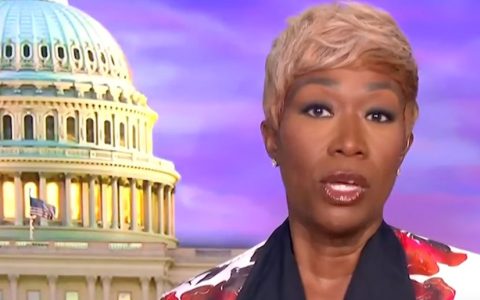
America’s enemies are growing emboldened every day. Now it’s reached a crisis level.
Because the Biden administration was just told to sit down and shut up by two of America’s biggest enemies.
In an increasingly interconnected world, the interactions between global powers hold immense significance, shaping not only bilateral relations but also influencing the broader geopolitical landscape. The recent meeting between top officials from Moscow and Beijing serves as a noteworthy example of this phenomenon, underscoring the deepening ties between Russia and China amidst a backdrop of escalating conflicts and economic sanctions.
The meeting, held in Beijing, brought together key figures including Russian Foreign Minister Sergey Lavrov, Chinese President Xi Jinping, and Foreign Minister Wang Yi. Amidst the exchange of pleasantries and diplomatic protocol, the discussions delved into a myriad of pressing issues, ranging from the ongoing conflict between Russia and Ukraine to the prospects of enhancing economic cooperation and shared concerns over perceived U.S. interventionism.
Central to the discussions was the specter of U.S. Treasury Secretary Janet Yellen’s warning, cautioning China against providing any form of support to Russia in its conflict with Ukraine. Yellen’s remarks, delivered during her visit to Beijing, highlighted the Biden administration’s unwavering stance against any actions that could potentially bolster Russia’s military endeavors in Ukraine.
In response to Yellen’s warning, Lavrov condemned what he perceived as blatant U.S. interference in the sovereign affairs of both Russia and China. Against the backdrop of Western sanctions imposed on Russia following its incursion into Ukraine, Lavrov reiterated the importance of strengthening bilateral ties between Moscow and Beijing as a strategic imperative to counterbalance external pressures.
“We continue to be concerned about the role that any firms, including those in the People’s Republic of China PRC are playing in Russia’s military procurement,” Yellen shared with reporters this week. “I stressed that companies, including those in the PRC, must not provide material support for Russia’s war and that they will face significant consequences if they do,” she added.
The economic dimension of the Russia-China relationship was also featured prominently in the discussions. Despite facing punitive measures from the West, Russia has found a reliable trading partner in China, with bilateral trade between the two countries reaching unprecedented levels.
This economic cooperation serves as a crucial lifeline for Russia, helping to mitigate the adverse effects of Western sanctions and bolstering its resilience in the face of geopolitical challenges.
Chinese Foreign Ministry spokeswoman Mao Ning declared during a press conference on Monday that China is “committed to playing a constructive role in promoting ceasefire and political settlement of the crisis” with regard to Ukraine. “Normal cooperation between China and Russia should not be subject to foreign interference or restriction, and China always opposes illegal unilateral sanctions.”
That’s diplomacy-speak for telling another nation to think twice about opposing this unholy relationship between the Chinese Communist regime and Vladimir Putin’s controlled federal government.
The fact that Xi Jinping met with Lavrov while Janet Yellen was still in Beijing, In my mind sends a very clear message to Washington about the relationship China and Russia have. A relationship that appears to get stronger and stronger. Washington must be Fuming. pic.twitter.com/utNEQYWPmc
— Barrett (@BarrettYouTube) April 9, 2024
Furthermore, reports suggesting an increase in the export of dual-use technologies from China to Russia underscored the growing collaboration between the two nations, particularly in the defense industry. While Chinese authorities have vehemently denied allegations of providing military aid to Russia, the surge in exports of items with both civilian and military applications has raised concerns among Western observers.
The geopolitical ramifications of the Russia-China partnership extend beyond bilateral relations, encompassing their collective role within broader international frameworks such as BRICS. As founding members of BRICS, Russia and China are committed to challenging the traditional dominance of Western powers and advocating for a more equitable global governance system.
The reaffirmation of ties between Russia and China, therefore, holds far-reaching implications for the geopolitical landscape. At a time when the world is witnessing increasing polarization and geopolitical tensions, the strategic partnership between Moscow and Beijing serves as a counterbalance to Western hegemony and underscores the growing influence of non-Western powers in shaping the future of global politics.
“China always attaches great importance to the development of China-Russia relations, and stands ready to strengthen bilateral communication with Russia and enhance multilateral strategic coordination in BRICS and… promote the reform of the global governance system,” China’s Xi shared this week during a meeting with state-run media.
The recent meeting between top officials from Russia and China highlights the deepening strategic partnership between the two nations amidst a backdrop of geopolitical challenges and economic sanctions. As they reaffirm their commitment to cooperation and solidarity, Russia and China are poised to play an increasingly significant role in shaping the course of international affairs in the years to come.
There’s growing concerns from those on both ends of the political spectrum that Joe Biden simply isn’t treating China as the serious threat that they are and are instead acting as if they can be handled like they are actually an ally.
President Biden’s defense budget proposal fails to meaningfully address the rising threats we face from Russia and China.
A 1% increase in defense spending is not sufficient, especially when China has already announced plans to increase its defense budget by 7.2%. pic.twitter.com/cIzay6HysX
— Senator Deb Fischer (@SenatorFischer) April 10, 2024
Stay tuned to the DC Daily Journal.





